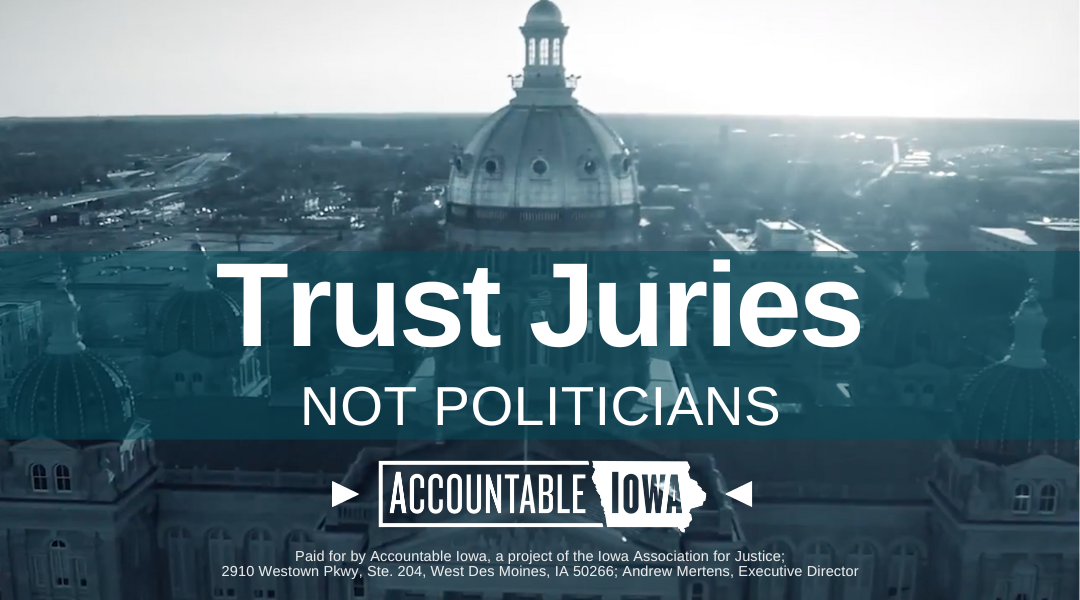Do parents have a fundamental right to know what is being taught to their kids? Parents all across Iowa and the U.S. have been talking about the need for more transparency in education and the obvious answer from everyone has been a resounding “YES!”
If the pandemic brought us nothing else, it brought us more awareness into what is being taught to kids in schools. Being able to view the courses online brought a whole new realization of where Iowans are at with education and curriculum. Parents are anxious about what is being taught inside classrooms. The tone across the nation, including here in Iowa, from the Democratic leaders is that parents should keep their nose out of school curriculum. Instead, parents are told to blindly trust the “experts” in academia without question. Legislators have heard from numerous parents from all across the state, regardless of whether it is a rural or urban area, that being able to access and review what their kids are taught can be difficult and confusing. Stories about how a parent or guardian requested to see the instructional materials only to find that the school or teacher wasn’t forthcoming or had no obligation to disclose it. And, if the parent or guardian was allowed to see the materials, their input and concerns were unimportant and oftentimes dismissed. Which raises a very basic question – why? Collaboration between parents and teachers, between parents and administrators and between parents and school board members should be natural instead of adversarial.
Here is some background of what is current practice in the state of Iowa. Keep in mind the Department of Education does not set curriculum. The Department sets standards and local school boards set curriculum. Yet another example of why school board elections are so important. There are only a few points in law addressing what is required of districts in regards to working with parents.
Here is what the state of Iowa has in Code:
Under the Senior Year Plus Program:
261E.3(2)(a)(3): The district, in collaboration with the teacher or instructor, shall provide ongoing communication about course expectations, including a syllabus that describes the content, teaching strategies, performance measures, and resource materials used in the course, and academic progress to the student and in the case of students of minor age, to the parent or legal guardian of the student.
Under Human Growth and Development Instruction:
279.50(3): Each school board shall annually provide to a parent or guardian of any pupil enrolled in the school district, information about the human growth and development curriculum used in the pupil’s grade level and the procedure for inspecting the instructional materials prior to their use in the classroom.
279.50(4) Each school district shall, upon request by any agency or organization, provide information about the human growth and development curriculum used in each grade level and the procedure for inspecting and updating the instructional materials.
There is no opt-out of particular curriculum outside of the statutory requirements under human growth and development instruction. Any opt-out for curriculum is locally determined.
As you can see, local schools have a great deal of control over what is taught in schools, but also are able shield what controversial ideas are taught as fact from parents or guardians. For example, if districts are teaching our children that their racial or ethnic identity is the most important aspect of their lives instead of their hopes, dreams, achievements and values, then parents need to know if that is the type of curriculum they want their children exposed to. Or if curriculum skews America’s founding principles towards a certain political ideology or if American history is taught through a politically biased lens, then parents have a right to know this kind of information.
Some schools are more than happy to provide the materials, curriculum, as well as options for parents to choose alternate materials. However, that isn’t the case everywhere.
Last night, our Education Committee passed the Governor’s plan on curriculum transparency, HSB 706. The plan includes new transparency and state standards which includes:
• Publishing course syllabi
• Written summaries of the material being taught in each class
• How each class meets or exceeds the educational standards
• Titles of all textbooks, books, articles, videos, and other educational materials used
• A comprehensive list of all books available to students in libraries operated by the district
• The procedures for the review and approval of all textbooks, books, articles, outlines, handouts, presentations, videos, and other educational materials used for instruction
• A flowchart developed by the Department of Education that lays out the policies for requesting removal of a school library book must be published online.
• The schools are required to update the information by August 23 and January 15th of each school year. Parents and guardians must be notified if there has been an update to the information.
The protocols for the selection, review, reconsideration, and removal of materials from libraries include:
• A process for the selection, reconsideration, and removal of materials in libraries operated by the school district
• The lawful and ethical use of information resources
• A process that allows the parent or guardian to request removal of materials that includes all of the following:
• The school district must review the materials and respond with the disposition of the request within 10 days.
• The parent or guardian may request the school board review the disposition of the request. The board must act on the request at the next regularly scheduled meeting but no later than 20 business days after the request. The board will affirm or reverse the district’s decision.
• The parent or guardian may appeal the decision of the board to the State Board of Education.
If the district fails to do the above, the parent or guardian may bring that to the State Board of Education as well. If a district does not comply with any of the new transparency standards, state aid for the school will be reduced for each day which the school district is found to have intentionally been in noncompliance.
With all that was said in the bill, changes to these ideas from the Governor are being discussed and House Republicans will work with Democrats and welcome additional feedback as this bill moves along. This is only the first iteration of the bill, and it will look different as it goes through the process. Regardless, we’re fighting for more transparency in schools and for parents to have control in their child’s education.

















